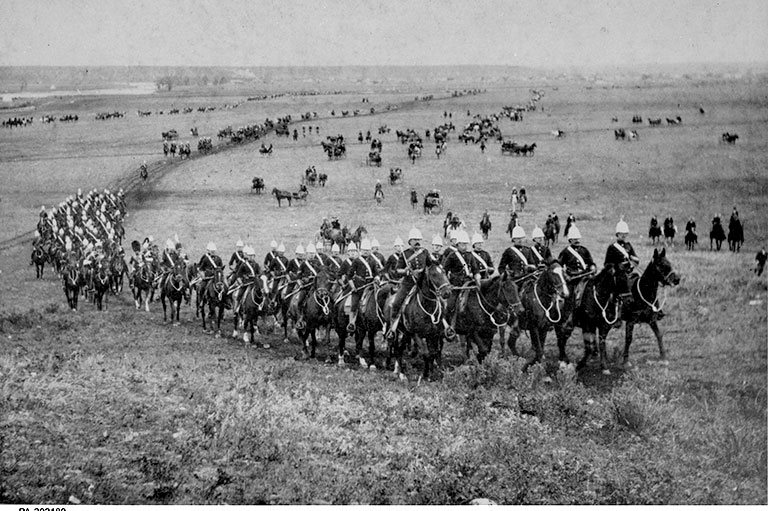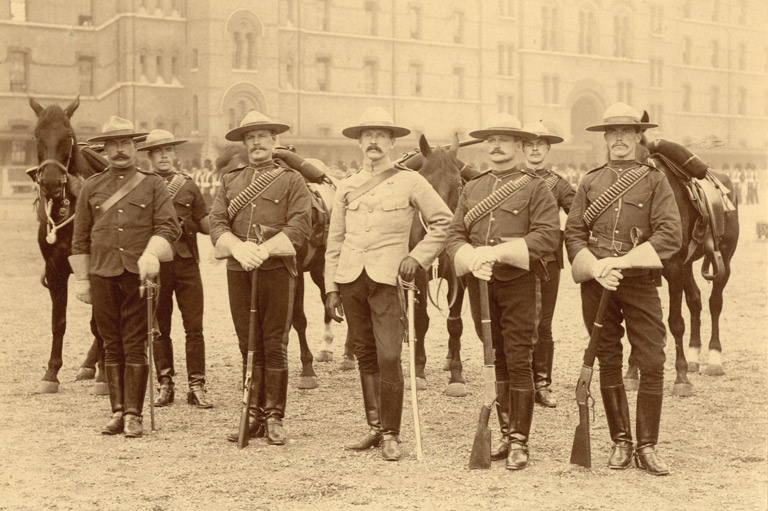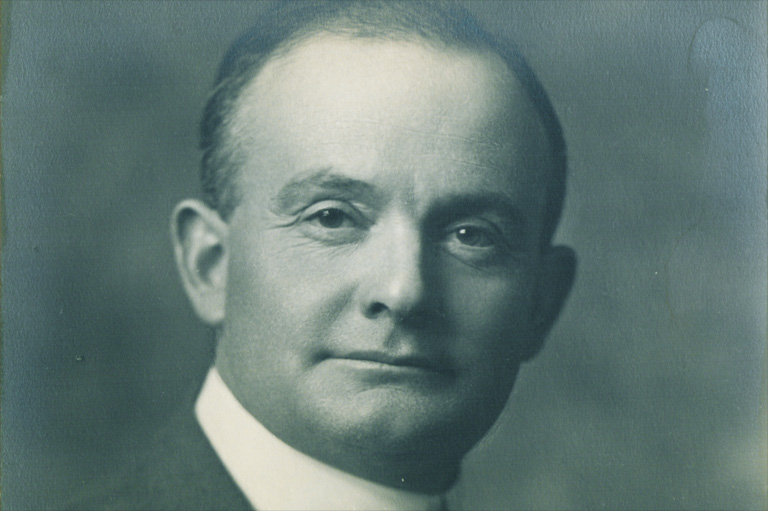Francis J. Dickens: Profile of an Officer
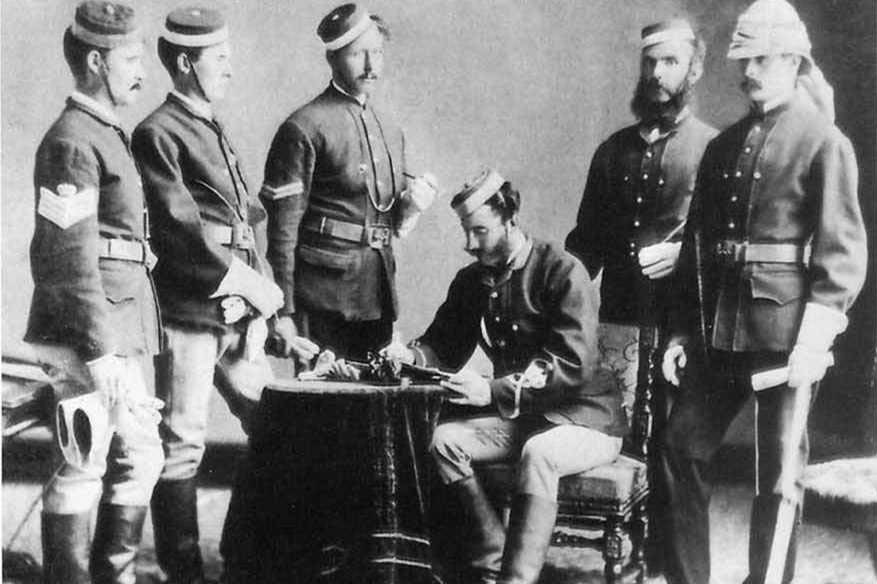
Though sometimes judged a mediocre officer, Inspector Francis J. Dickens was typical of many early Mountie recruits. Thrown into unstable situations with few resources, little direction, and lots of cultural baggage, these ordinary men nevertheless rose to the challenges that faced them.
When Louis Riel led the rebellion in Canada’s West in the spring of 1885, the inhabitants of Battleford were panic-stricken. Parts of their village had been looted and burned. Defeat of the North-West Mounted Police and volunteers by the Metis at Duck Lake and word of murders at Frog Lake prompted 500 local settlers to cram into the comparative safety of the police stockade.
Up the North Saskatchewan River another 160 kilometres, the Hudson’s Bay Company post of Fort Pitt was an obvious target for attack. Dickens commanded the 24-man police detachment there. He begged Inspector William Morris, his colleague at Battleford, for assistance.
Fort Pitt was no military installation. It was open and exposed, vulnerable to fire, and the closest water supply was the river 365 metres away. Later assessments suggested 200 well-armed troops would have been needed to defend Pitt against warriors under Cree war chief Wandering Spirit, who appeared on the nearby hills in mid-April. Police and civilians together-men, women, and children-totalled fewer than 70.
Outnumbered and surrounded, Dickens could expect no help from Morris, who feared weakening his own defences. Morris suggested the police and civilians abandon Pitt and make their way to Battleford. However, Dickens dreaded the consequences of being caught in the open.
When scouts were dispatched from Battleford on April 18, they returned with devastating news. Pitt had been taken and burned. A slaughter was feared. But on April 21, the escaped police were spotted upstream.
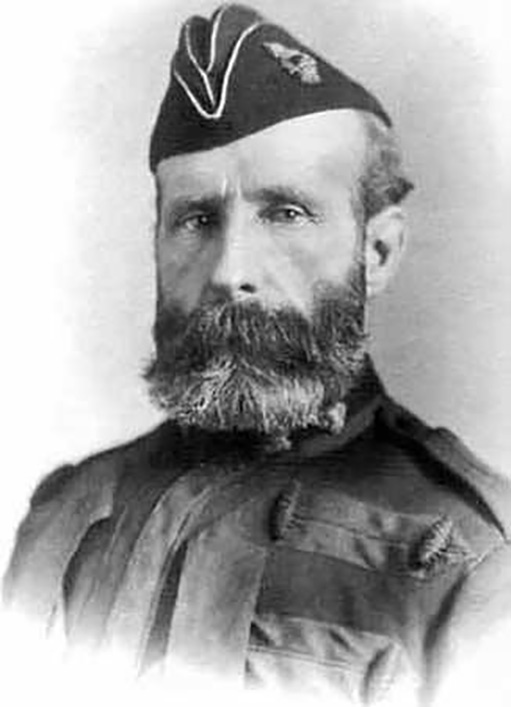
When Dickens and his men arrived at Battleford the next day, the welcome was one reserved for conquering heroes. A band played martial music and a feast was prepared as the exhausted police landed their battered scow after a perilous six-day voyage fending off threatening ice floes and raging river waters.
For Dickens, the trip was to be the final field service in a 12-year career with the police. Never physically strong, Dickens’s health would be ruined by the ordeal.
Canadian propagandists of the day turned retreat into victory. Charles Pelham Mulvaney, in The North West Rebellion of 1885 portrayed Dickens as “one of the coolest and most intrepid soldiers” in the West, calmly puffing on his pipe as he sniped at Cree marauders. “No more heroic fight or successful defence in the face of overwhelming odds illumines the pages of modern history,” Mulvaney proclaimed.
More sobering judgments later chastised Dickens’s abandonment of the fort as “humiliating,” even though defending the indefensible post would surely have cost scores of lives, both native and white.
Dickens personally exemplified many of the problems of the NWMP at that time. He had been hired through political pull, knew virtually nothing of Canada, was too fond of a tip of the bottle, and was of questionable health and capacity.
Despite these shortcomings, he was placed in positions of greater responsibility because more capable officers had left for brighter opportunities rather than endure the poor pay, inadequate supplies, and intolerable working and living conditions that faced the first Mounties.
Former policemen found other occupations, from ranching to running bars, to be more rewarding. They had been frustrated by the repeated failure of Ottawa bureaucrats to address the need for more troops and supplies. But while others gave up, Dickens stayed.
So how did a son of Charles Dickens wind up in the Canadian West?
Frank, as he was commonly known, was born in early 1844. Charles first saw the youngster as the brightest of his 10 children, and Frank was most like his father in “face, gesture and manner.” As the boy grew older, however, Charles despaired of his son’s competence.
With 7 uniquely curated newsletters to choose from, we have something for everyone.
Life in the Dickens household was not easy. There were happy times, but Charles was often harshly critical of the children. The author was especially mystified by Frank’s severe stammering, describing the boy as “an afflicted spirit.” Trying to correct the problem, he and the lad would read literary passages aloud, the father admonishing his son to recite slowly and distinctly.
Frank wanted to be a doctor, but concluded his stammer would not allow him to succeed. From boarding school, he wrote his father to ask that he be given 15 pounds sterling, a gun, and horse, all that he needed to become a gentleman farmer in the colonies.
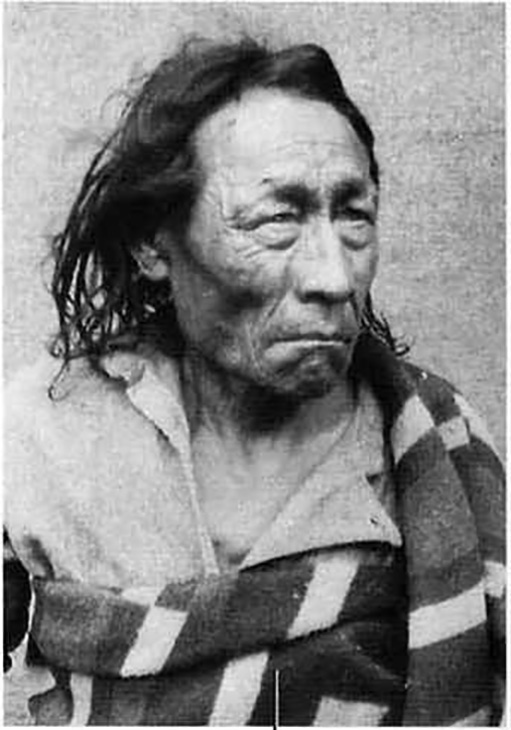
Charles’ reply was scathing: “I perceived that the first consequence of the fifteen pounds was that he would be robbed of it — of the horse, that it would throw him — and of the rifle, that it would blow his head off,” he wrote to a friend.
Instead, Charles hired Frank at his magazine, All the Year Round. “If I am not mistaken, he has a natural literary taste and capacity, and may do well with a chance so congenial to his mind,” Charles enthused. But Frank was a flop in the office, and when he also failed the British Foreign Office exams, Charles negotiated a post in the Bengal Mounted Police. In December 1863, Frank left for India, not returning until 1871, after his father’s death.
Frank’s misadventures continued. Back in England, he overstayed his leave and lost his officer’s commission. His inheritance was squandered on poor investments and dissipated living. One of the few items he kept was his father’s gold watch, left to him because of Charles’s concern over the son’s lack of punctuality.
A political favour rescued Frank from his disgrace. Lord Dufferin, the new governor general in Canada, was a family friend and great admirer of Charles. The Canadian government was setting up a police force to patrol newly acquired western lands. A word in the appropriate ear, perhaps?
Connections were often the quickest route to officers’ postings in the early force. Edmund Dalrymple Clark, nephew to Sir John A. Macdonald, would become paymaster. William Herchmer, later a commissioner, was the son of a close friend of Sir John’s in Kingston, Ontario.
Dickens, taken on as a sub-inspector late in 1874, soon fell afoul of his superiors. He was late getting to the West, and then brazenly claimed extra expenses incurred in his scramble to catch up. When a stern letter arrived from the justice minister’s office, he tersely brushed it off. The incident left bureaucrats spluttering.
A constant complaint in the Force was that the regulation saddles were uncomfortable and inadequate, while clothing was unsuitable for the extreme climate. Some griped; Dickens acted. He ordered saddles and coats from London for himself and two colleagues.
When the gear arrived, customs imposed duty. Dickens challenged the tax, arguing that the equipment was being used on government service. The lengthy fight was settled in his favour, just after Dickens had to undergo his first assessment as an officer.
In a third incident, Dickens was caught red-handed, attempting to have brandy mailed to him at the Swan River headquarters in Manitoba, by Commissioner George French. This violated French’s strict rules. Dickens was not alone in his desire for forbidden waters.
A mandate of the Force was to stop the liquor trade, but the police, no saints, were as likely to imbibe as those they policed. Confiscated alcohol inexplicably disappeared. Constables and officers repeatedly tasted contraband wares to prove to their satisfaction that the fluids they seized were indeed whisky.
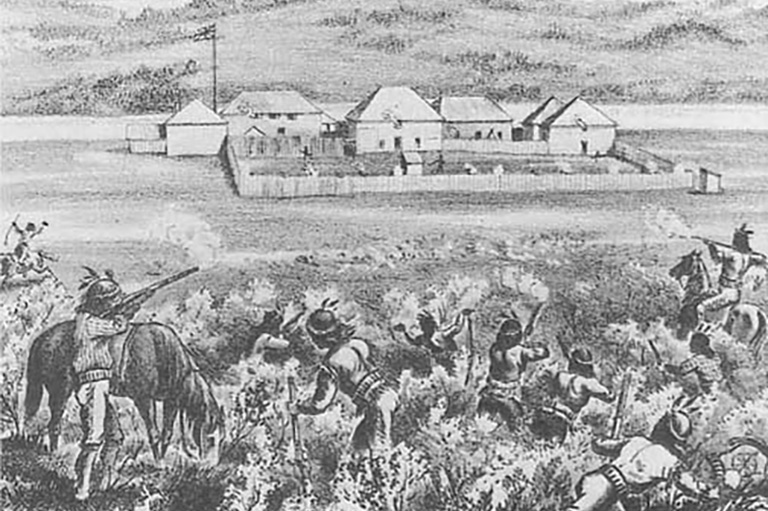
Early on, then, Dickens may have established himself as a troublemaker. Certainly, he suffered in that first assessment by Major-General Edward Selby Smyth in 1875. Smyth was not impressed overall by the Force’s officers; there were too many “decayed gentlemen.” Turning to Dickens, Smyth described him as “a very poor officer of no promise. Physically weak in constitution, his habits not affording good example.”
Later, Commissioner A.G. Irvine called Dickens lazy, with no interest in his work. “I am of opinion that his brain is slightly effected [sic].” Only his final evaluation in 1885 was remotely positive when it noted that he was “much more steady in his habits.” Even that was a kiss of death: the next line pointed out that he was “very deaf.” Dickens’ fate was sealed.
Save as much as 40% off the cover price! 4 issues per year as low as $29.95. Available in print and digital. Tariff-exempt!
If Dickens’s personal inadequacies were so obvious, why was he placed in posts of increasing responsibility? The answer is that, for politicians, once the Force had gone West it was out of sight, out of mind. Meagre pay and neglect resulted in shortages of men. Even poorly regarded officers were needed on field duty. So Dickens was sent to lead detachments in two sensitive areas. The first was at Blackfoot Crossing.
The winter of 1881–82 was perhaps the most tense period in relations between the Blackfoot and Canadian authorities. With the disappearance of the buffalo, starvation had reduced the proud warriors and hunters to begging. The atmosphere was poisoned between the Blackfoot and government agents, who did little to alleviate the evident suffering.
When an angry minor chief, Bull Elk, fired shots in the direction of government contractors, Dickens arrested him. Furious, armed warriors prevented him from taking the prisoner to Fort Macleod for trial. Having little choice, Dickens agreed to place the offender in the custody of paramount Blackfoot chief Crowfoot until a magistrate arrived.
When his superior, Superintendent Leif Crozier, learned of the incident, he saddled up, rode to the crossing, built fortifications, and rearrested Bull Elk. His bold but provocative action was a legend-creating moment for the Mounties. But it also broke the deal between Dickens and Crowfoot. Dickens has been blamed for the worsening relations between the two sides.
But in retrospect, Dickens’s face-saving, commonsense deal with Crowfoot had restored temporary peace and might have been a better path than the bellicose course chosen by Crozier.
In mid-1883, Dickens was reassigned to Fort Pitt, where the government wanted to settle Big Bear’s Crees, the last major holdouts from the reserve system. Here he met Tom Quinn, a rangy Minnesotan and the local Indian agent. Quinn had married a Cree woman with family ties to Big Bear. But at a time when Ottawa was ordering cutbacks, Quinn was a hardliner when it came to distributing government rations. By the fall of 1884, relations were hostile.
During these disputes the Cree leaders regarded Dickens as a sympathetic soul. “We like you. Your heart is good,” Big Bear told Dickens, contrasting him with Quinn. For his part, Dickens noted in dispatches that as long as the Cree were given rations he didn’t anticipate trouble.
But quarrels between Quinn and his clients over food broke out anew at Frog Lake in March 1885. After the first skirmish with the Métis, Dickens suggested that Quinn and the other men come to Pitt where they could be protected. Quinn resolved to stay put, but told the six police at Frog Lake to go to the fort. Quinn believed Cree anger was directed at the police, a fatal misjudgment. Within days Quinn and eight others would be dead, with the agent the first to fall.
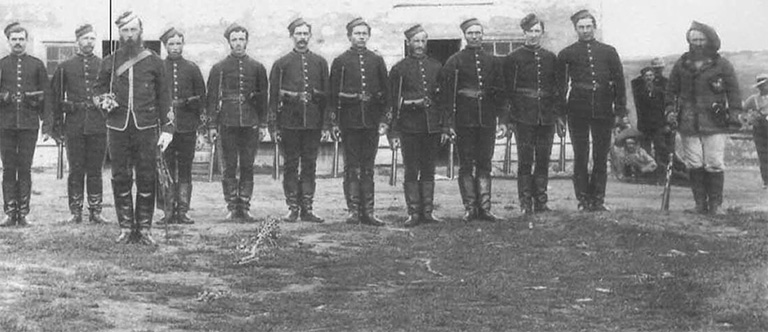
The Cree then moved on Fort Pitt, where Dickens initially refused to surrender. In a letter which repeated friendly references to Dickens, Big Bear told the police they would be allowed to leave without bloodshed. The civilians, mostly Hudson’s Bay Company employees under factor William McLean, opted to place themselves in Big Bear’s hands. With that, Dickens saw no further point in a bloody defence of the fort and retreated downriver to Battleford.
How does Dickens compare with his colleagues? One author has noted the police were a disparate — if not a desperate — lot, including “broken down gentlemen, Canadian bucolics and desperadoes, old soldiers, cowboys, sailors, and hell-rake adventurers.”
One Mountie who left the Force to become an Indian agent was fired for falsifying scales. Others who ran a pool hall were the subject of investigations by their erstwhile colleagues. The territory’s lieutenant governor complained about some “making rather free” with First Nations women. In 1883, 25 men deserted and many more clamoured to buy their way out of service.
Eleven more deserted from Fort Macleod in one month of 1884. Whatever his other failings, Dickens never stood accused of immoral behaviour, and existing letters show he cared about his men. He loyally stuck to his post. After the ordeal at Pitt he requested his first leave in 11 years.
By that time, Dickens’ spirit was crushed and his health irreparably damaged. Eventually he was invalided out. Then followed a battle for a retiring allowance. Influence came into play here, too, with a political friend asking Sir Charles Tupper, then high commissioner in London, to put pressure on Prime Minister Macdonald for a settlement.
While awaiting his pension, Dickens met an American doctor who convinced him that he could mount a profitable lecture tour in the United States. As he sat down to supper in Moline, Illinois, before his first talk in June 1886, he suffered a heart attack and died. He was 42. About 40 years after Frank’s death, his last surviving brother was sent the service medal earned in the North-West Rebellion. That and his sword can be seen today at the RCMP museum in Regina. In 1949, a lake in the La Ronge area of Saskatchewan was named after him.
Dickens may be seen as typical of those early NWMP officers, newcomers to the West, who were often out of their depth, understaffed and underequipped, and ignorant of First Nations culture. They were ordinary men with human failings who were expected to accomplish extraordinary deeds. Today we might wonder how they functioned as well as they did despite government bungling and their own shortcomings.
We hope you’ll help us continue to share fascinating stories about Canada’s past by making a donation to Canada’s History Society today.
We highlight our nation’s diverse past by telling stories that illuminate the people, places, and events that unite us as Canadians, and by making those stories accessible to everyone through our free online content.
We are a registered charity that depends on contributions from readers like you to share inspiring and informative stories with students and citizens of all ages — award-winning stories written by Canada’s top historians, authors, journalists, and history enthusiasts.
Any amount helps, or better yet, start a monthly donation today. Your support makes all the difference. Thank you!
Themes associated with this article
Advertisement


